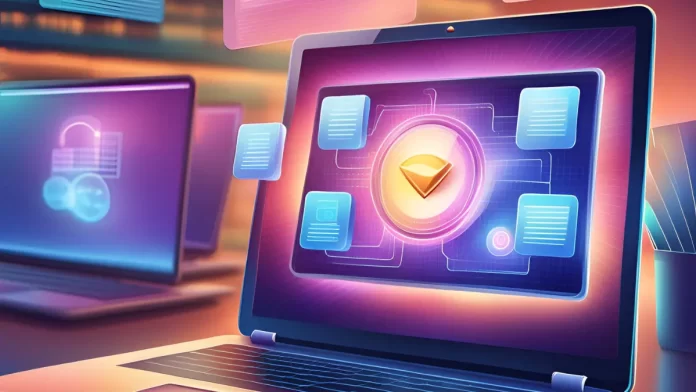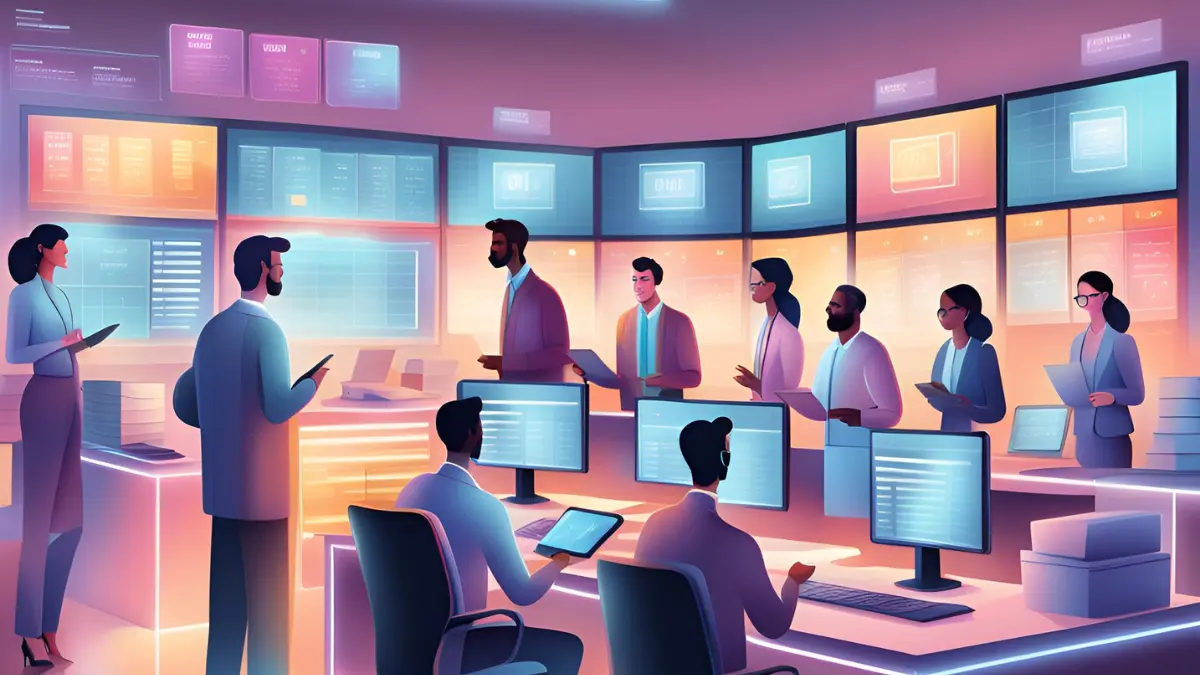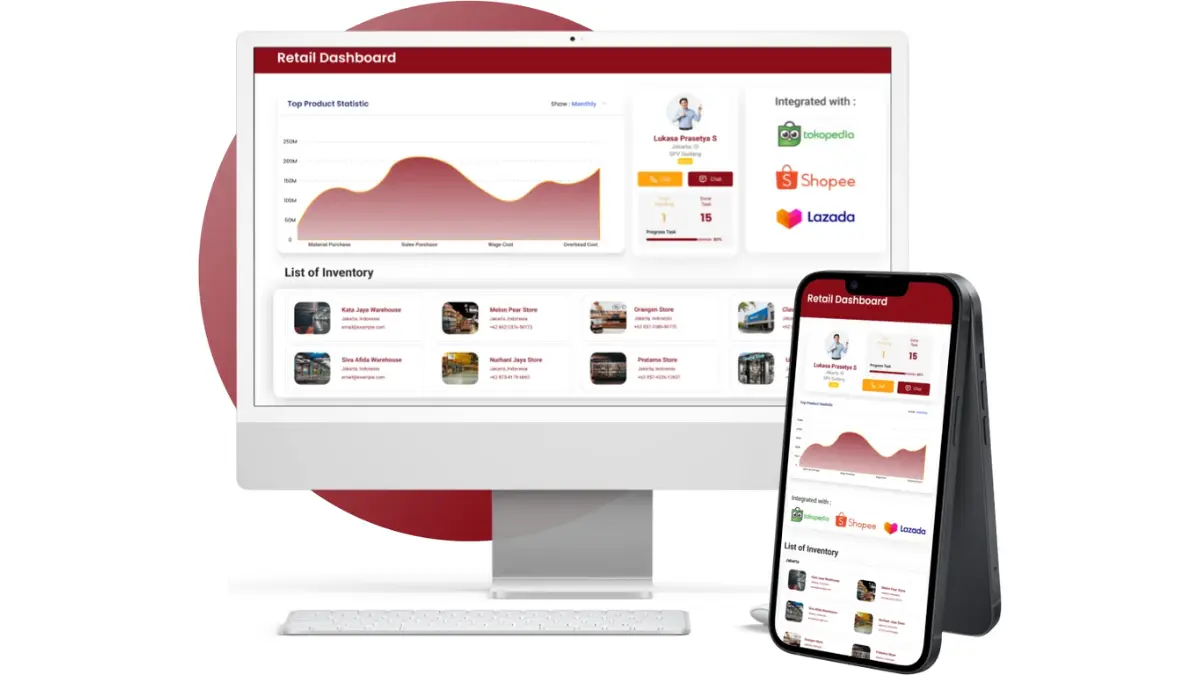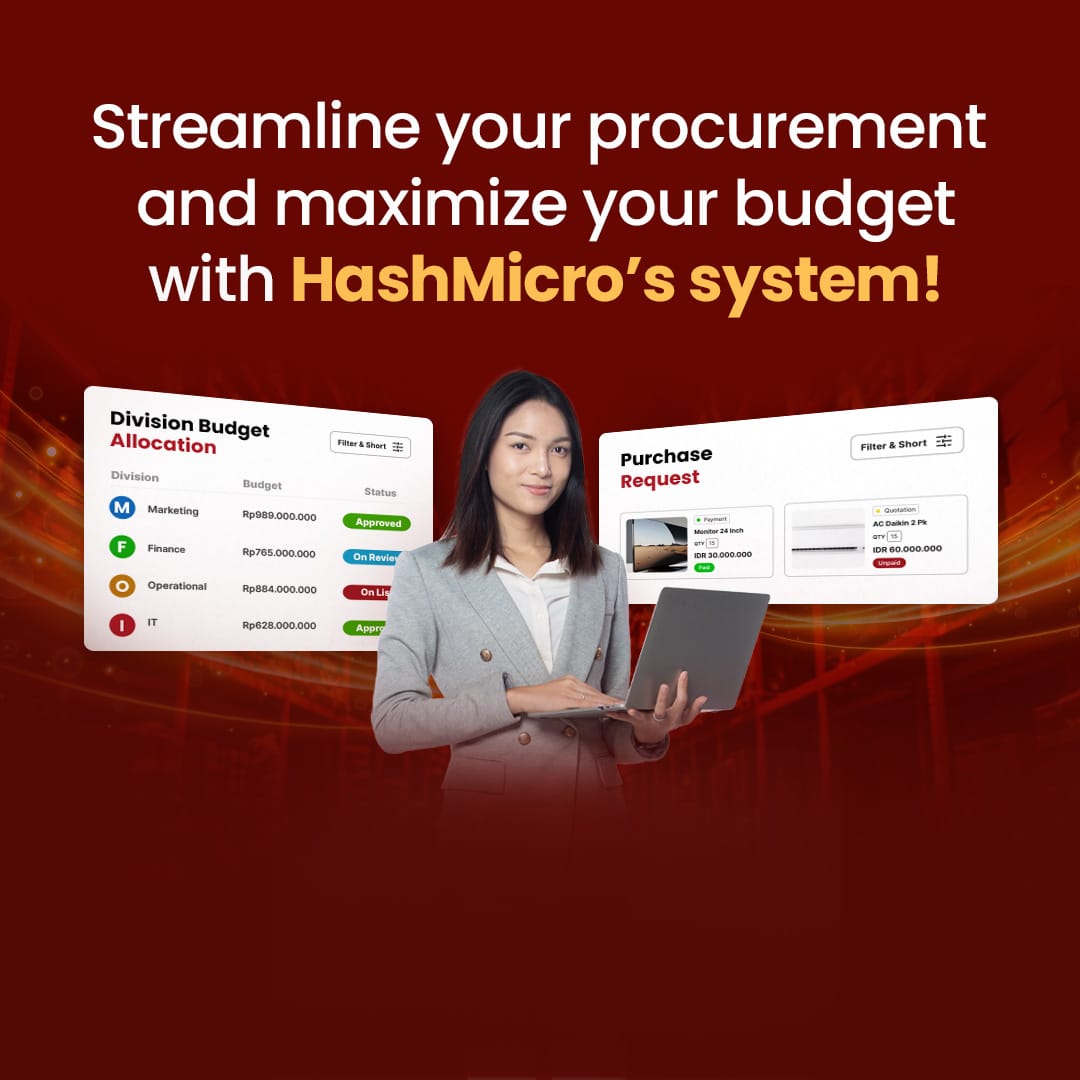Retail procurement is the process of sourcing and purchasing the necessary inventory for a business to meet customer demand. It involves identifying suitable suppliers, negotiating terms, and ensuring that the purchased goods are delivered on time and meet the required quality standards.
However, without the right software, this process can be challenging. Ensuring consistent quality and on-time delivery from suppliers is critical, as any disruption can affect the entire supply chain. Additionally, maintaining optimal stock levels to avoid overstocking or stock-outs requires precise forecasting and real-time data analysis while managing overall procurement costs to maintain profitability.
The use of advanced procurement software is essential in overcoming these challenges. According to a survey, outside the I&C sector, digitalization across other industries contributed SGD 73 billion (11.9% of GDP) in 2022, up from SGD 39 billion (8.7% of GDP) in 2017.
This growth highlights the broader adoption of digital technology across various sectors, driving productivity and innovation. Continue reading this article to learn more about the retail procurement process and why your Singaporean business must understand and implement it effectively.
Table of Content:
Table of Content

Key Takeaways
|
What is Retail Procurement?
Retail procurement is the process of sourcing and purchasing inventory for your business. For companies that manufacture their products, procurement process also involves acquiring the raw materials needed to produce these finished goods.
This process is crucial for ensuring a business has the right products to meet customer demand without overstocking or understocking. Effective retail procurement helps maintain a balanced inventory, which is essential for smooth operations and customer satisfaction.
Additionally, procurement in retail requires careful planning and vendor management to secure the best prices and maintain quality standards. Businesses can reduce costs, improve efficiency, and strengthen their competitive advantage by optimizing procurement processes.
Types of Retail Procurement
Before discussing the specific types of procurement in retail, it’s important to understand that each category plays a distinct role in the overall supply chain. There are several different types of retail procurement, and the one that best suits your business may vary depending on your business and the products you sell.
By implementing procurement ERP, businesses can streamline operations, reduce costs, and enhance their competitiveness by effectively managing these types.
- Direct procurement: This involves purchasing goods that are directly related to the production process, like raw materials or components. Essentially, direct procurement impacts the end product and requires precise management to ensure smooth operations.
- Indirect procurement: Indirect procurement covers the goods and services that support day-to-day business operations, such as office supplies and equipment. Though not directly tied to production, it is vital for maintaining an efficient and productive work environment.
- Services procurement: This type of procurement involves acquiring services such as consulting, maintenance, or IT support. These services are crucial for keeping the business running smoothly, ensuring you have the right expertise and support in place when needed.
Steps in the Retail Procurement Process
Before diving into the specific steps of the retail procurement process, it’s essential to recognize that each phase plays a vital role in ensuring smooth operations and cost-effective purchasing. By carefully managing each step, businesses can minimize risks, maintain high-quality standards, and foster strong supplier relationships.
Below are the key steps to optimize your retail sourcing process.
1. Determine the required products or services
First, assess what products or services are essential for your business operations. This step involves understanding your inventory needs and anticipating demand. By accurately identifying your needs, you can avoid overstocking and ensure timely availability.
2. Choose a supplier
Once you know what you need, research and evaluate potential suppliers who meet your quality and delivery requirements. Consider factors like reliability, pricing, and reputation. Choosing the right supplier is crucial for maintaining a smooth supply chain.
3. Finalize contract terms
After selecting a supplier, negotiate the contract terms to ensure favorable pricing, delivery schedules, and payment terms. Effective negotiation can lead to cost savings and better service levels. It’s crucial to reach an agreement that benefits both parties and fosters a long-term relationship.
4. Issue the purchase order
With the contract in place, issue a purchase order that details the products, quantities, and agreed-upon terms. This document serves as a formal request and record for both the buyer and supplier. Submitting accurate purchase orders helps prevent misunderstandings and ensures smooth transactions.
5. Oversee fulfillment and quality
Once the order is placed, closely monitor the fulfillment process to ensure timely delivery and maintain product quality. Regular communication with the supplier can help address any issues early on. Ensuring quality and timeliness helps maintain customer satisfaction and business continuity.
6. Complete the payment process
After receiving and inspecting the goods or services, process the payment according to the agreed-upon terms. Timely payment strengthens your relationship with the supplier and may lead to better terms in the future. It also reflects good financial management and operational efficiency.
7. Assess vendor performance metrics
Finally, the supplier’s performance is evaluated based on critical metrics like delivery time, product quality, and service level. This review helps identify areas for improvement and informs future procurement decisions. Regular performance reviews ensure that your procurement process remains efficient and effective.
Benefits of Utilizing Effective Retail Procurement
Understanding the importance of an effective retail procurement process can impact every aspect of your business. By optimizing procurement, companies streamline operations, unlock cost-saving opportunities, and improve relationships with suppliers.
Here are the key benefits that a strong procurement strategy can bring to your retail business:
- Cost savings: By leveraging effective procurement in retail, businesses can negotiate more favorable terms with suppliers, resulting in substantial cost savings. This improves profit margins and frees up resources for other critical investments.
- Enhanced supplier relationships: With a well-structured procurement process, companies can cultivate strong, long-term partnerships with their suppliers. These relationships ensure consistent access to high-quality products and services, essential for maintaining a competitive edge.
- Improved inventory management: Effective procurement strategies help businesses maintain optimal stock levels, reducing the risks of overstocking or running out of essential items. This balance leads to better inventory turnover and minimizes storage costs.
- Increased operational efficiency: Streamlining the procurement process reduces administrative burdens and minimizes the chances of errors, leading to smoother operations. As a result, businesses can focus more on core activities and improving customer satisfaction.
- Better risk management: An effective procurement system enables businesses to identify and mitigate potential risks, such as supply chain disruptions or unreliable vendors. By addressing these risks proactively, companies can ensure a more stable and resilient supply chain.
- Compliance and accountability: A robust procurement process ensures that all purchasing activities comply with industry regulations and standards. Additionally, it enhances transparency and accountability within the organization, which is crucial for maintaining trust and integrity.
- Data-driven decisions: Utilizing advanced procurement tools provides valuable data insights that inform more strategic decision-making. This data-driven approach empowers businesses to optimize procurement strategies and drive long-term growth and efficiency.
After knowing some of the benefits that retail procurement offers, you can start considering using the right software and try the price calculation offered by HashMicro. Click the banner below to find out if this procurement software for the retail sector is the right choice for your Singapore business.
Challenges in Retail Procurement
Understanding the common challenges in retail procurement is crucial for anyone looking to streamline their operations and avoid costly mistakes. By recognizing these obstacles early, you can take proactive steps to mitigate risks and ensure a smoother procurement process.
Here are the key challenges you should be aware of to better prepare your business for success.
- Supplier management: Managing supplier relationships can be challenging, especially when ensuring consistent quality and timely deliveries. Effective communication and regular performance evaluations are crucial to maintaining strong partnerships.
- Cost control: Controlling costs while securing the best deals from suppliers is a constant balancing act. You can manage your procurement expenses better by implementing strategic sourcing and negotiating favorable terms.
- Supply chain disruptions: Unexpected disruptions in the supply chain can lead to delays and increased costs. To mitigate these risks, it’s essential to have contingency plans and diversify your supplier base.
- Data management: Accurately handling large volumes of procurement data is critical for informed decision-making. Investing in robust data management systems helps ensure you have reliable, real-time information at your fingertips.
- Compliance: Adhering to regulatory requirements across different regions complicates the procurement process. Staying informed and regularly updating your compliance practices is vital to avoid legal complications.
Best Practices for Retail Procurement Management
Before diving into the best practices for retail procurement management software, it’s crucial to understand the impact that efficient procurement can have on your business’s overall success. You can streamline operations, reduce costs, and build stronger supplier relationships by implementing proven strategies.
Below are the essential practices that can help you optimize your procurement in retail process:
- Build a formal procurement process: Establishing a clear and structured procurement process ensures consistency and transparency in all purchasing activities. This approach helps reduce errors, streamline operations, and improve overall efficiency.
- Manage inventory and supply chain: Effective inventory and supply chain management are crucial for maintaining stock levels and minimizing disruptions. By regularly monitoring these areas, you can avoid overstocking or stockouts, ensuring your business runs smoothly.
- Leverage data analytics: Utilizing data analytics allows you to make informed decisions based on real-time insights and trends. This practice helps you optimize procurement strategies, identify cost-saving opportunities, and enhance supplier performance.
How HashMicro Supports Retail Procurement Processes
HashMicro is one of Singapore’s leading ERP software providers. It offers top-tier procurement solutions trusted by many retail companies across Southeast Asia. With its proven track record, HashMicro has become the go-to choice for businesses seeking to streamline their procurement processes.
To learn more about how HashMicro can benefit your business, try their free demo and explore the full range of features available.
HashMicro’s Retail Procurement System stands out from other solutions because it seamlessly integrates with third-party systems and is flexible in customizing features to meet specific business needs. These advantages make it an ideal choice for businesses seeking a tailored procurement solution.
Before we dive into the detailed features of HashMicro’s procurement solution, it’s important to understand how these benefits translate into real-world efficiency and cost savings.
- PO, RFQ & PR Management: Effortlessly create purchase requests, convert them into purchase orders, and send RFQs to suppliers—all with just a few clicks. This software simplifies the entire purchasing process, saving time and reducing errors.
- Automatic Vendor Rating: This software automatically evaluates vendors based on punctuality, pricing, completeness, etc. It allows you to measure vendor performance easily, ensuring you work with only the most reliable suppliers.
- Flexible Approval Based on Branches, Divisions, Amount, and Product Types: Manage approvals efficiently across multiple locations or departments. This software allows for centralized approval management with just a click, ensuring control throughout your organization.
- Budget Tracking & Limit per Purchase: This feature monitors spending closely and ensures purchases stay within budget. It helps maintain financial discipline and avoid overspending.
- Cost Savings Tracking and Reporting: Track and report on cost savings achieved through effective procurement strategies. This software provides valuable insights into the financial benefits of your purchasing decisions.
- In-Depth Purchase Analysis: Gain valuable insights into purchasing trends, vendor performance, and cost efficiency. This feature enables data-driven decision-making to optimize your procurement process.
- Direct Purchase Management: Manage direct purchases seamlessly, ensuring that essential products are always available when needed. This feature keeps your supply chain running smoothly.
- Landed Cost Calculation: This software gives you a complete view of the total costs associated with your purchases, including taxes, shipping, insurance, and currency conversion. It allows you to accurately calculate the landed cost of goods, helping you maintain profitability.
Conclusion
Retail procurement is essential for maintaining efficient business operations, as lacking the proper tools and understanding can lead to significant challenges. Companies must recognize the importance of procurement in retail and invest in the right software to drive growth and success.
HashMicro’s Procurement Management Software stands out as one of the best choices for managing procurement in the retail industry. It offers comprehensive solutions designed to meet the unique challenges of procurement in retail industries, ensuring a smoother and more efficient process.
HashMicro’s software is suitable for businesses of any size due to its robust system integration, flexibility to customize features according to specific business requirements, and easy-to-use interface. These strengths make it an excellent choice for retail businesses aiming to improve their procurement processes.
To experience the benefits firsthand, we invite you to try a free demo of HashMicro’s procurement software and see how it can transform your retail procurement management.

FAQ About Retail Procurement
-
What are the 4 types of procurement?
1. Direct procurement: Direct procurement involves acquiring goods, materials, or services that a business uses to generate profit, either by producing finished products or resale.
2. Indirect procurement involves acquiring goods or services that support a business’s daily operations but are not directly linked to the final product. These purchases are essential for maintaining smooth business functions, even though they don’t contribute directly to production.
3. Services procurement: This type focuses on obtaining various services necessary for the business’s operation.
4. Goods procurement involves acquiring physical products that the business uses internally or sells to customers. -
What is difference between purchasing and procurement?
Understanding the difference between the two can help drive company success. While purchasing focuses on short-term goals and business needs, procurement focuses more on long-term strategic goals such as corporate strategy and competitive advantage. Both processes need to be approached with different approaches.
-
What is the difference between internal procurement and retail buying?
Procurement involves a broader, more strategic approach while purchasing tends to be more immediate, tactical, and transactional. However, these two processes are complementary and work together effectively.
-
Why is procurement important in retail?
Procurement is crucial in retail because it ensures that businesses have the right products at the right time, directly impacting customer satisfaction and sales. Effective procurement helps manage costs, build strong supplier relationships, and maintain optimal inventory levels. Without it, retailers risk inefficiencies, stock issues, and increased operational costs.






































